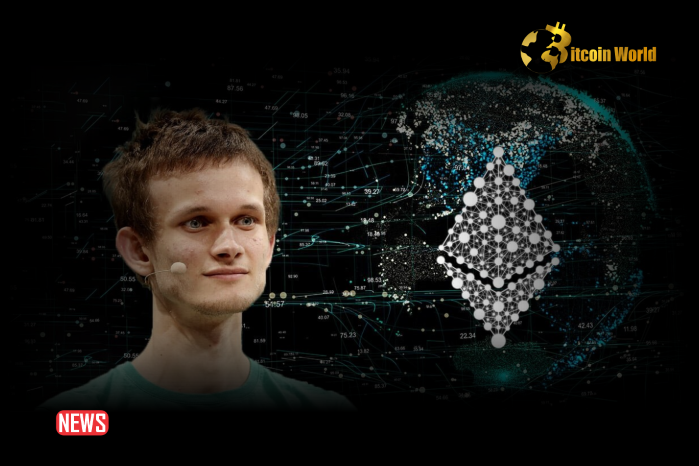Ethereum co-founder Vitalik Buterin is known for pushing the boundaries of blockchain technology. His latest move? Registering the ENS domain ‘dacc.eth.’ But what exactly does ‘defensive accelerationism’ mean, and how might this impact Ethereum and the broader crypto landscape?
Vitalik Buterin’s New Domain: dacc.eth Explained
Buterin’s registration of ‘dacc.eth’ via the Ethereum Name Service (ENS) highlights his increasing interest in privacy and proactive technological development. The ‘dacc’ stands for ‘defensive accelerationism,’ a concept that contrasts with Silicon Valley’s ‘effective accelerationism.’ Buterin’s approach emphasizes the importance of cybersecurity, privacy protection, and fostering freer governance through technology.
Why Defensive Accelerationism?
Defensive accelerationism, as championed by Buterin, focuses on:
- Proactive Development: Creating technologies that enhance security and privacy.
- Cybersecurity Focus: Prioritizing robust defenses against threats in the digital realm.
- Privacy Protection: Building tools that empower users to control their data.
- Freer Governance: Promoting decentralized systems that resist censorship and control.
The domain registration on August 18 signals a renewed commitment to these principles. While the specific plans for ‘dacc.eth’ remain unclear, it underscores Buterin’s consistent advocacy for privacy-enhancing solutions.
Buterin’s Privacy Advocacy: A Consistent Theme
Buterin’s commitment to privacy isn’t new. He has consistently spoken out against censorship and championed tools that protect user data. From endorsing messaging apps like Signal to using decentralized platforms like Farcaster, Buterin’s actions reflect a deep concern for individual privacy in the digital age.
Ethereum’s Evolution: Prioritizing Privacy and Scalability
Ethereum, while a leading blockchain network, hasn’t always prioritized privacy. Recognizing this, Buterin and other Ethereum developers are actively working to enhance the network’s capabilities in this area. This focus is evident in recent and upcoming Ethereum upgrades.
Key Ethereum Upgrades:
- EIP 1559: Introduced a more stable gas fee structure and made ETH deflationary by burning a portion of transaction fees.
- Pectra Upgrade (Planned): Aims to bring significant improvements to account abstraction, validator operations, and overall network performance, slated for late 2024 or early 2025.
- Dencun Upgrade (Implemented): Reduced fees on Layer 2 scaling solutions by over 90%, making them more accessible and usable.
Ethereum vs. The “Ethereum Killers”
Several alternative blockchain protocols, often dubbed “Ethereum killers,” have emerged, each attempting to address perceived shortcomings in Ethereum’s design. These include:
- Solana (SOL): Aims to provide faster and cheaper transactions.
- Cardano (ADA): Emphasizes decentralization and a research-driven approach.
- Avalanche (AVAX): Focuses on reducing time to finality.
While these protocols offer unique advantages, Ethereum maintains a dominant position in DeFi and institutional adoption. The approval of spot ETH ETFs in major markets like the US, UK, and Hong Kong further solidifies Ethereum’s standing.
Conclusion: Ethereum’s Future is Privacy-Focused
Vitalik Buterin’s registration of ‘dacc.eth’ is more than just a domain name; it’s a statement of intent. It signals a renewed focus on defensive accelerationism and the importance of privacy in the development of decentralized technologies. As Ethereum continues to evolve, expect to see further advancements in privacy-enhancing features, solidifying its position as a leading platform for a more secure and decentralized future.
Disclaimer: The information provided is not trading advice, Bitcoinworld.co.in holds no liability for any investments made based on the information provided on this page. We strongly recommend independent research and/or consultation with a qualified professional before making any investment decisions.




